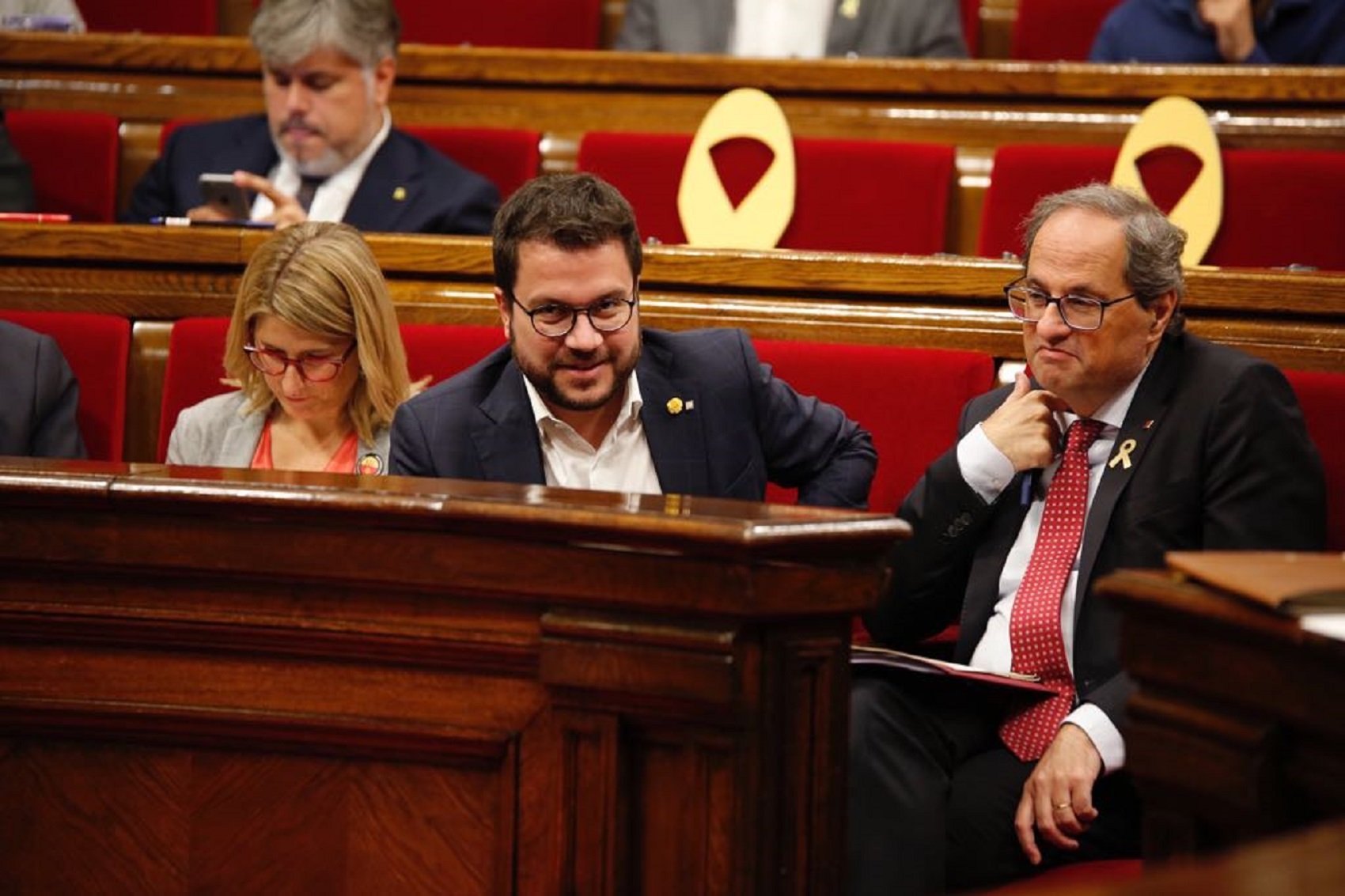JxCat and ERC have agreed that the Catalan government should continue negotiating with the Spanish state for "an agreed-upon, binding, internationally-recognised referendum which respects the right of the Catalan public to decide". They have, however, set no deadline.
The two groups will submit this proposal to a vote in the chamber on Thursday through joint bills they've presented as part of this week's general policy debate. The text comes the day after Torra gave Pedro Sánchez's government an ultimatum: either make a proposal for a referendum on self-determination within a month, or they will stop propping him up in the Congress.
The same text also urges the executive to "promote the dialogue and bilateral negotiation with the state, without conditions or renunciations". The objective, it says, should be to "reach agreements which respond to the political, economic and social demands of the citizens of Catalonia".
The government partners also urge the executive to demand the state "immediately" meet its commitments "in terms of funding, transfers and investment", to negotiate an adjustment of deficit objectives, as well as the withdrawal of appeals before the Constitutional Court that laws approved by the Parliament are unconstitutional.
As well as this bill, the two parties have presented a further 21 proposals, the majority in individual areas, ranging from culture and language, to taxation and the fight against benefit fraud. Other areas include teaching and sexist violence.
JxCat calls for dialogue
JxCat has introduced another bill, this time alone, calling for the Parliament to ratify a "dialogue between governments, institutions and people" to move forward in the "negotiation and the solution of the new political project which should allow for the self-determination of Catalonia", after the 1st October referendum and 21st December election.
Carles Puigdemont's party has also presented another bill for the Parliament to censure king Felipe VI and demand the abolition of the monarchy.
Finally, and again by themselves, JxCat presented a text asking that the Parliament affirm "the large consensus of the country that voting is the best tool to democratically decide the political future of Catalonia". It goes on to call for them to "continue working to building bridges creating large consensuses" with the social actors who took part in the "countrywide standstill" on 3rd October last year.

